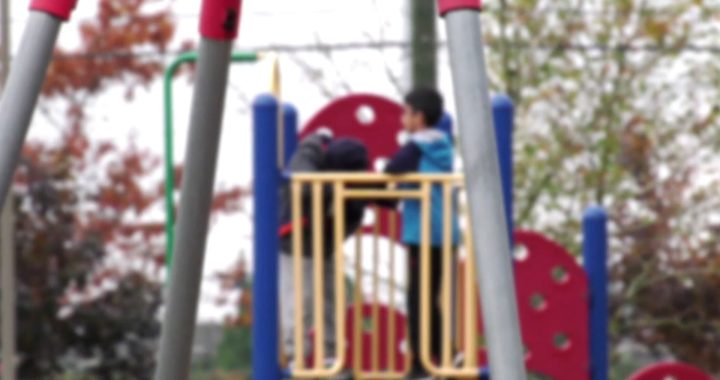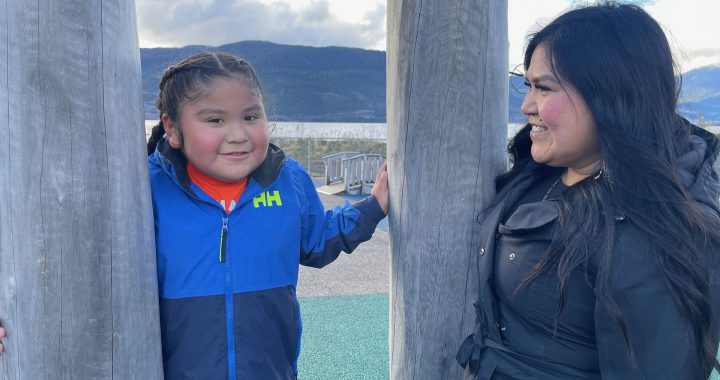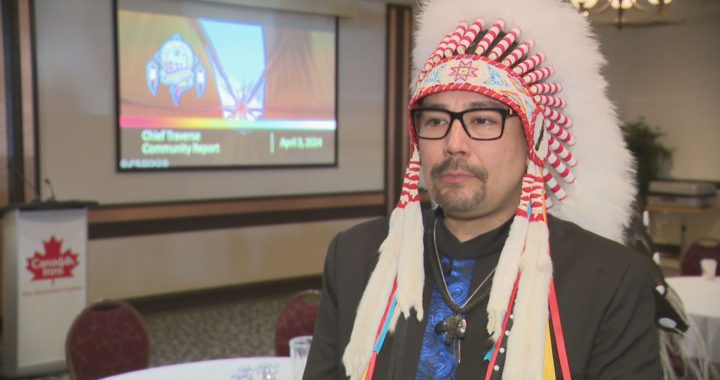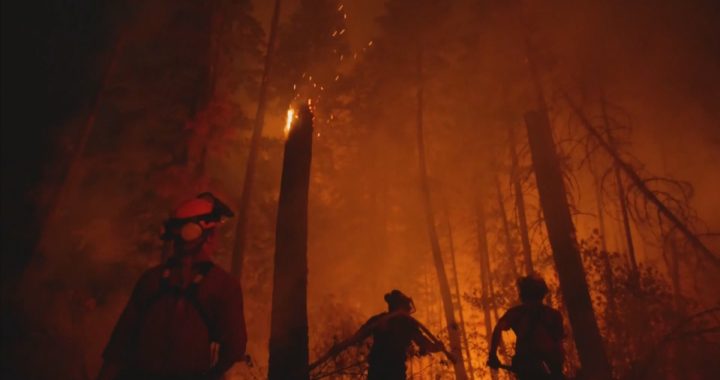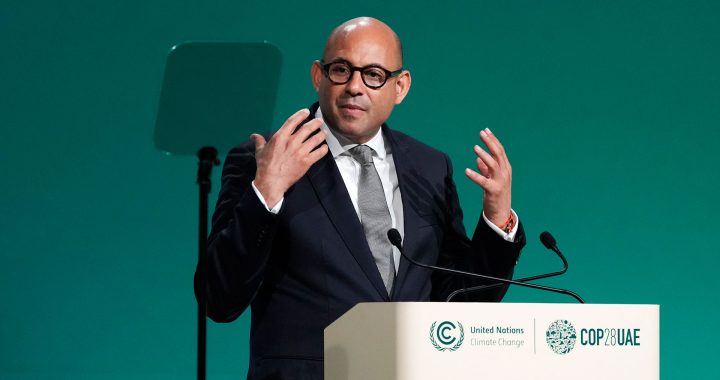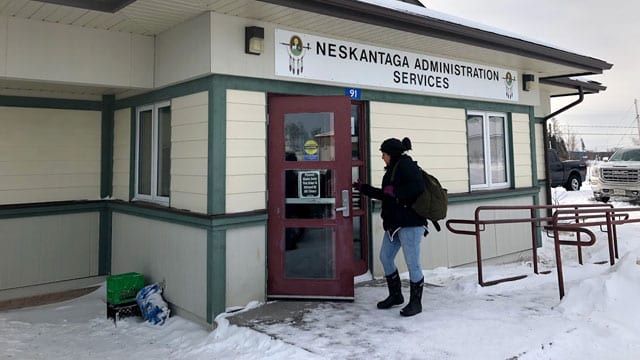
the chief of Neskantaga First Nation says the federal government isn't doing anything to help community during water crisis. Photo: APTN
The chief of Neskantaga First Nation in northern Ontario says hundreds of people are being evacuated from the community due to a water crisis.
Chief Christopher Moonias says an oily sheen was discovered in the Neskantaga water reservoir earlier this week.
He says the community has identified 175 vulnerable residents who need to leave, out of an on-reserve population of about 460.
However, he says many others have requested evacuation or left on their own because of the situation.
Moonias notes that the community has also been under a boil-water advisory for more than 25 years, and accuses the provincial and federal governments of “dragging their feet on our crisis.”
Neskantaga, a fly in community 430 kilometres northeast of Thunder Bay, has been under a boil water advisory since 1995.
After being elected in Oct. 2015, the Liberals promised to get the community off the water advisory.
But things haven’t turned out the way the community expected.
In 2017, Indigenous Services announced $8.8 million to upgrade the water treatment plant.
People there were expected to have clean water by the end of May 2018 but the project fell behind schedule.
People in the community must use a reverse osmosis station for clean water.
They fill up jugs to haul back to their homes.
This was supposed to be a temporary fix when the current system was installed nine years ago.
‘Are we important?’
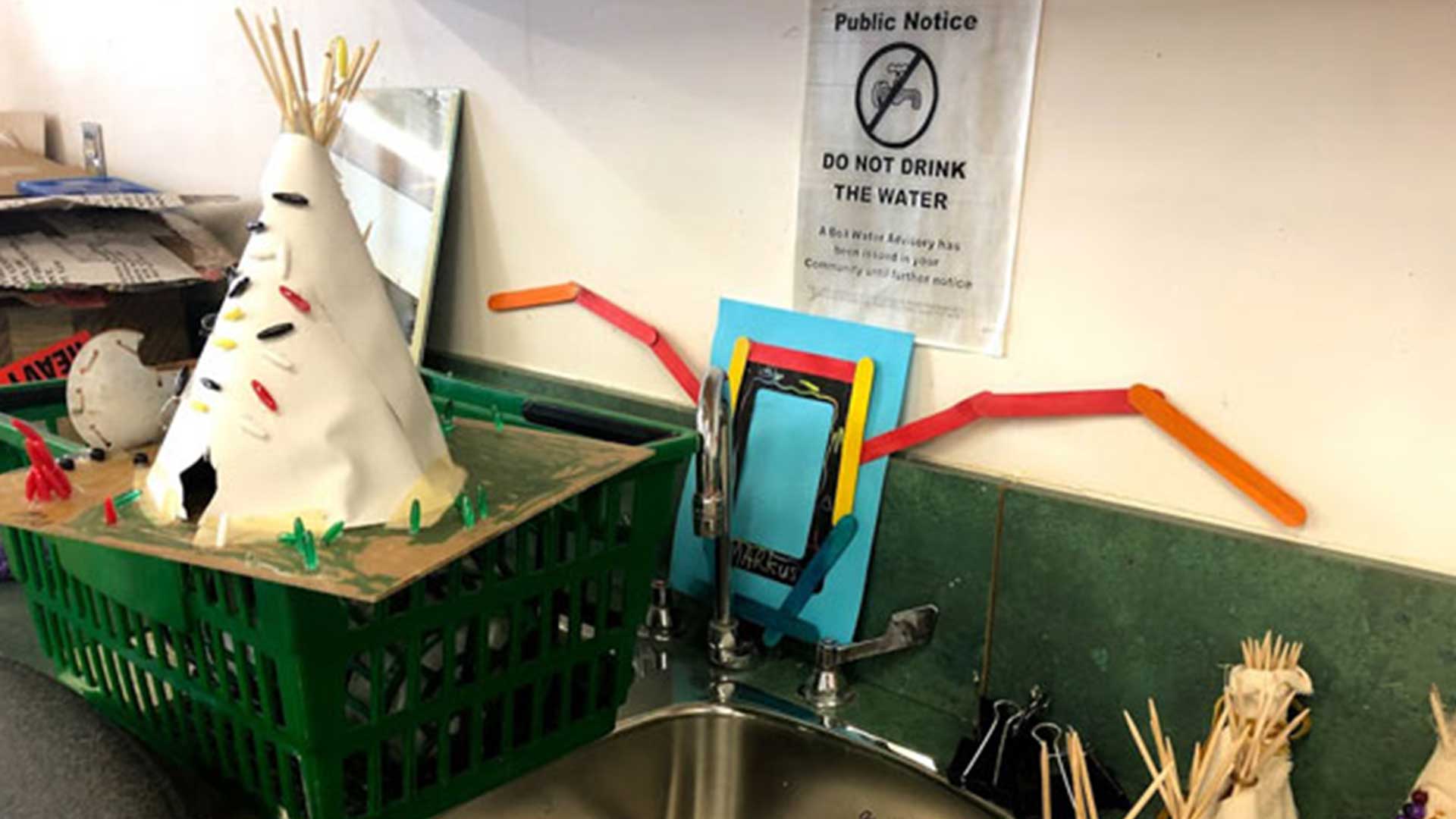
Chief Alvin Fiddler of the Nishnawbe Aski Nation which represents 49 First Nations in northern Ontario wrote a public letter to Prime Minister Justin Trudeau chastising Indigenous Services ministry for their reaction to the crisis.
“We are in the middle of a global pandemic. You are aware that remote and isolated communities are even more vulnerable to the risks of the COVID-19 virus. I reiterate – there is absolutely no access to water in this community,” Fiddler said in the letter that was released to the public. “What is clear however, is that your government does not.
“I participated in a phone call this morning where senior officials from the Ministry of Indigenous Services Canada concluded on the basis of their internal analysis that “there is no public health emergency”, therefore no support for this evacuation from the perspective of the federal government.”
Fiddler finished the letter by putting two questions to Trudeau; “Why is this not a public health emergency? And “Are we not important?”
Canada says it will cover cost of evacuation
According to a statement from the office of Marc Miller, minister of Indigenous Services, officials received notice of the state of emergency on Oct. 20 and is responding through the emergency management plan.
“The evacuation of Level 1 vulnerable individuals, identified by the Chief has approximately 175 people including their companions, began on October 20, 2020, immediately following the declaration. We will be providing funding to cover the costs of this evacuation,” said the statement.
“Canada will work with Ontario to ensure seamless access to health services including mental health and that appropriate public health precautions are taken throughout the evacuation process in order to safeguard evacuees from the risk of COVID-19 contagion.”
According to the government, efforts are focused on “quality and volume issues that the First Nation has identified.”
“ISC has reached out to the lab to offer support and request the water test results be expedited and the Department continues to provide funding for bottled water to ensure that residents of Neskantaga First Nation have continued access to safe drinking water.”
The statement from Miller said that $16.4 million has been invested in the community to date to lift the long term boil water advisory and that final upgrades are underway.
With files from The Canadian Press




